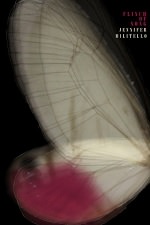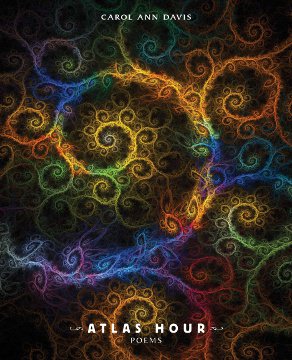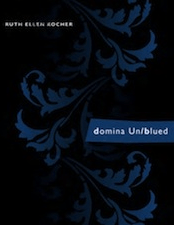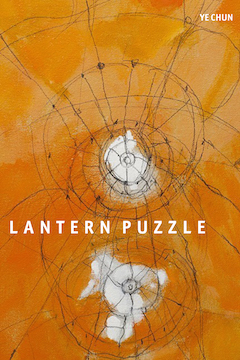Flinch of Song
by Jennifer Militello
$19.95
“… were it permissible, I would quote every word of every line of every page. Absolutely drenched in metaphor, simile, allusion and linguistic invention, tightly written without a word let waste its clout, and, quite frankly, dense with spell-binding beauty, Militello’s work is also a poetry of loss, though … not of the physical, but of lovers, of childhood, of family, of identity, of the mind, and of the weight and revelations of the freedom that results from those losses. Parts of the human body are absorbed into elements from nature, voices take on the sounds of rural and marine equivalences, snatches of urbanism reflect the flow of Life and all its struggles and heartbreaks.”
–John Mingay
Format: paperback
Out of stock
“Militello’s is a book infused with restlessness, spiraling around the ideas that suffering not only keeps us alive but makes us live more fiercely, and that being necessarily means, at some point, no longer being. . . The book rests with the realization that by being born to this world, we are born to loss, even to the loss of ourselves.” — Emma Bolden, Southern Humanities Review
Read an exuberant review (quoted in part here) of Flinch of Song by John Mingay in the online Stride Magazine:
… Flinch of Song by Jennifer Militello from which, were it permissible, I would quote every word of every line of every page. Absolutely drenched in metaphor, simile, allusion and linguistic invention, tightly written without a word let waste its clout, and, quite frankly, dense with spell-binding beauty, Militello’s work is also a poetry of loss, though … not of the physical, but of lovers, of childhood, of family, of identity, of the mind, and of the weight and revelations of the freedom that results from those losses. Parts of the human body are absorbed into elements from nature, voices take on the sounds of rural and marine equivalences, snatches of urbanism reflect the flow of Life and all its struggles and heartbreaks.
Without a trace of doubt, Militello is a truly worthy winner of the Tupelo Press / Crazyhorse First Book Award. The judging panel have, in this instance, got it spot on. What they have recognised is her sheer talent and, with their award, have hopefully given her the self-belief to continue to develop from a starting point that is already streets ahead of so many of her contemporaries. And, with such talent spread before me, I find it difficult to resist sharing more of it with you, in essence to allow it to speak, as it does so eloquently, for itself. As I said, were it permissible … every word, every line, every page. But, with this option clearly and sadly not open to me, and knowing the following extracts will not suffice beyond being the most inadequate of tasters, I can only suggest … no, demand that you go and get hold of a copy before they’re all gone. Don’t think you’ll be getting mine it will not be appearing on Amazon Marketplace.
—John Mingay, Stride Magazine
Read Christina Cook’s review of Flinch of Song from the online journal Poet’s Quarterly. Here’s an excerpt:
As with abstract painting, Militello’s poems are only half comprised of the ostensible subject. The other half is comprised of a vision of the world in which the subject is situated. The subject, then, is actually an intersection of itself and its context, and in this poem, as with many others in the collection, the context is comprised of both interior and exterior landscapes. The subject of the portrait/poem essentially becomes the inseparability of a given self and its world, and the reader cannot gaze on the self—indeed him or herself—without gazing on the world… .
All but a few of the poems in the collection are in couplets and tercets, and the traditional stanzaic form has the effect of making the reader always feel on familiar ground, however far Militello’s resolutely elliptical language takes us from the hold of logical reasoning and narrative structure. The result of this form and content pairing is that the world of her language becomes our new familiar. Each time I finished a reading of Flinch of Song, I sat back and asked, how did she do that? Each of her poems is a self-contained experience, and they are collectively held together by the musical power of language. Its cadences, pacing, sound symbolism, and imagery lead the beguiled reader into interior spaces which are previously unknown and at the same time strangely familiar. I look forward to discovering what her next collection of poems will reveal about what I didn’t realize I already knew.
—Christina Cook, Poets’ Quarterly, April 2010
Tupelo Press First Book Award
Jennifer Militello’s work is ruminative and lyrical but with an unusually theatrical verve, which is displayed in associative leaps so agile that readers will be exhilarated by the imagination at work (and play) in each poem. This powerfully unified first book grapples with what is simultaneously gigantic and miniscule in human existence: the momentous everyday dramas of love and family.
Praise for Militello’s new book:
“To walk into Flinch of Song is to enter a very particular kind of house, the kind whose corners sing as you pass them by, whose rooms promise a certain light — profoundly interior — and whose inhabitants seem to know you from the time before you were born. The poems call out, saying Here’s freedom! just as Emily Dickinson once did upon closing the door to her room, happy to be inside something so large. That these poems also glitter with loss and pain makes Jennifer Militello’s first book nothing less than a powerfully honest account of what it takes to survive when we find such freedom.” —Carol Ann Davis, final judge for Tupelo’s First Book Contest
Additional information
| Weight | .4 lbs |
|---|---|
| Dimensions | 6 × .5 × 9 in |
Confusing Past with Passion
I swear it was summer: I was strung through
with light. Nothing offered shelter but the river
and a tremble of depth that kept us questioning.
And if our folds were full of wolves, you can imagine
the predators we feared. Sixteen swallows the same
as destination. An ordinary house on unordinary nights.
Now the river looks nothing like our skins. Its scales
mistaken for sunlight or blood, then becoming them.
Each gleams twice once left behind, its gold watch
hypnotic. New sadnesses ungather every time;
I’ve never known so many, such. Becoming boats
turned over, beached. Ribs bleached, blue once.
Miserere
Raw materials, have mercy on us.
Life is a ladder at the last burning room.
The burning is burning no matter how sweet.
Day keeps circling like a dog to sleep.
Dandelions hanging with their parasols of dust.
May we despair by their dim cloth.
May our hands grow into ghosts of the open, the whole,
birds which land separately but fly up all at once.
May treetops weave a crown of thorns.
Grief unbuttoning its high-collared dress.
Change as a reon that strikes at the lake.
Death at heels, herding.
Wind as a sking in that it passes.
May it rain.
May we rest between failures.
Flinch
Murder is what we seem, deep in such black feathers.
Night, a revolver emptying rounds, sends us so far
we are gone for good, suffocating with the strings
on the sack pulled taut, seized like an oilless engine.
Because I burn in symptoms though the illness
has been cured, I hear hooves which, galloping,
drag a wing and crave a length, drop open
paper fans of air like the storm still gathering
a long way off. Because I fill with injury,
I strike the child, I grip the blind man’s cane.
Ask me to promise, I will promise you this:
not looking, we can see for miles. Not sleeping,
we can sleep. The moth at the screen will beat
its wings, twin throats of torture in a flinch of song.






